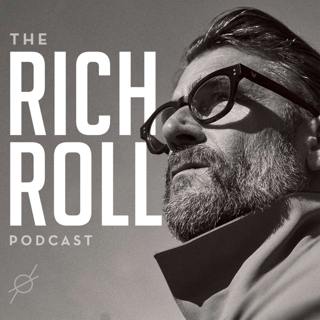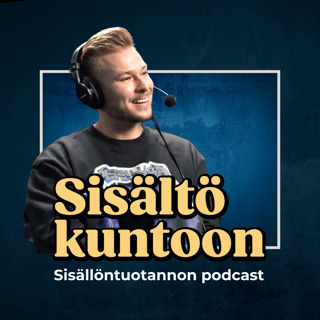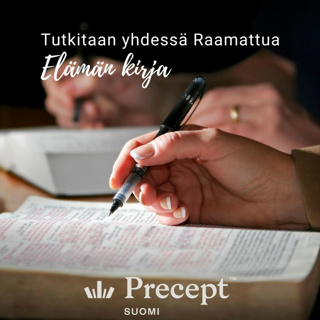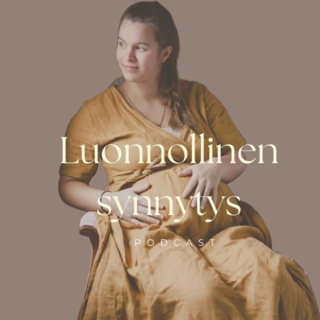
Roll On: What Happened to the Olympics?
Marked by endless scandal and rampant corruption, the Olympics are in free fall. Today we explore how the world's most highly acclaimed brand has become corrosive, and what can be done to repair it. But fear not, we also celebrate a selection of inspiring athletic highlights from Beijing to Oahu, answer listener questions, share a few products that have caught our fancy, and more. As always, my co-host for today's rendition of 'Roll On' is ‘His Semi Deepness’ Mr. Adam Skolnick, an activist and veteran journalist known as David Goggins’ Can’t Hurt Me co-author. Adam writes about adventure sports, environmental issues, and civil rights for outlets such as The New York Times, Outside, ESPN, BBC, and Men’s Health. He is the author of One Breath and still uses the ‘new dad’ excuse to avoid working on his novel. Topics discussed in today's episode include: the politics behind the declining global interest in the Olympics; bribery & corruption within the International Olympic Committee; how a Florida town with no ice rink produced three Olympic speedskaters; the backlash levied upon teenage freeskier Eileen Gu; speedskater Nils van der Poel's manifesto on Z2 aerobic base training; how Erin Jackson became the first Black woman to win individual Winter Olympic gold; Kelly Slater's Pipe Masters win days before turning 50; and the benefits of using "dumb phones" in limiting screen time & phone addiction; and more As always, we close things out by taking a few listener questions. Today we answer: How do you cultivate optimism and gratitude as a natural cynic? How do you stay true to your goals? What advice do you have for young people navigating their twenties? Thank you to Brett from NYC, Bill from Crested Butte, and Evan from Iowa for your questions. If you want your query discussed, drop it on our Facebook Page or, better yet, leave a voicemail at (424) 235-4626. The visually inclined can watch it all go down on YouTube. And as always, the podcast streams wild and free on Apple Podcasts and Spotify. Enjoy the show! Peace + Plants, Rich
17 Helmi 20222h 10min

Johann Hari On Why You Can’t Pay Attention (& How To Reclaim Your Focus)
We are living in a time of upgraded technology and downgraded humans. Our collective ability to resist distraction and sustain attention is in decline. Although will power plays a role, this problem is not entirely our fault—it’s the by-product of powerful forces incident to modern life. Disconnection from nature. Disrupted sleep. Toxic environments. Predatory tech. What exactly does a focus-less future augur? And what can be done to reclaim our ability to truly concentrate? Back for his second appearance on the show, our steward for these existential questions is journalist & multiple New York Times bestselling author Johann Hari, who, when confronted with his own deteriorating attention span, dove deep into the individual and systemic solutions to this dispiriting collective trend. Johann has written for the LA Times, Le Monde, and many other outlets, has two of the most-watched TED Talks, and has been profiled in essentially every prominent media outlet. His books include Chasing The Scream and Lost Connections,, which explores the roots of addiction, and was the subject of our first exchange back on episode #416. But today, he’s here to share big lessons from his latest book, Stolen Focus: Why You Can’t Pay Attention, which is a provoking journey into the forces robbing us of our attention and a look at how we might begin to reclaim our minds, and our lives. Today’s conversation focuses on the problematic impact of big tech, smartphone addiction and surveillance capitalism on our well-being and that of our children. We discuss the specific factors contributing to attention decline–from reduced sleep, environmental pollution, and something called the switch/cost effect, to chronic stress, poor nutrition, lack of exercise, and disconnection from others and the natural world. Beyond the many problems, we, of course, also address solutions—both systemic and individualistic—such that we may recapture our focus and be the best version of ourselves. Johann is quite the entertaining storyteller, with humor that makes hard truths go down a little easier. To read more, click here. You can also watch it all go down on YouTube. And as always, the podcast streams wild and free on Apple Podcasts and Spotify. This is a hopeful conversation about how to build a life of greater joy, enhanced personal fulfillment, and focus. My wish is that it serves and enlightens. Enjoy! Peace + Plants, Rich
14 Helmi 20222h 20min

Oceanographer Sylvia Earle On Resilience, Hope & Mysteries Of The Deep
In the words of today’s guest, treat the natural world as if your life depends on it—because it truly does. Meet absolute living legend Sylvia Earle, Ph.D. A marine botanist, oceanographer, writer, lecturer, and one of the world’s top experts on ocean science and conservation, Sylvia is affectionately called “Her Deepness” by The New Yorker and the New York Times, and the “First Hero for the Planet” by Time magazine. Over the course of her 85 years, Sylvia has logged over 7,000 hours underwater, and not to mention, set a record in 1979 that still stands for the deepest untethered dive by a woman—1,250 feet. She was one of the very first National Geographic explorers-in-residence, served as the first female Chief Scientist at NOAA (The National Oceanic and Atmospheric Administration), has authored more than 20 books, is a pioneer of submersible engineering, and established Mission Blue, an organization dedicated to protecting marine areas identified as critical to the health of the ocean, or as she calls them, “Hope Spots.” You may very well have seen her appearance in Seaspiracy or have caught word of her fascinating new book entitled Ocean: A Global Odyssey, the subject of today’s exchange. This conversation focuses on the majesty of our oceans, the tragedy of their decline at the hands of humankind, and the urgency that we must marshal for their preservation. But it’s also a conversation about hope. The power we all possess to create the change we need and desire. While I love all my guests, I have to admit I’ve never met anyone quite like Sylvia. What can be said other than to recognize the honor, the gift of spending an afternoon with her, soaking in her wisdom and experience. I have such tremendous respect and admiration for her work. Her example sets the tone for us all. And my hope is that this one inspires you into your own form of action and activism—because it really does all come down to us. To read more, click here. You can also watch it all go down on YouTube. And as always, the podcast streams wild and free on Apple Podcasts and Spotify. So here it is—me and Her Deepness, Slyvia Earle. Peace + Plants, Rich
7 Helmi 20222h 9min

Roll On: Rest, Reflection & Responsibility
After a seasonal sabbatical, ‘Roll On’ is back. And it’s time to hash out a bit of drama. After a two-month respite, Roll On returns with a discussion on ‘Moneyball-esque’ advances in sports science, the role of podcasting in the culture wars, the importance of taking a professional pause, how my sleep habits ended up as ‘news’, and so much more. As always, my magnanimous sidecar hype-beast and co-host Adam Skolnick joins me at the round table. Adam is an activist and veteran journalist known as David Goggins’ Can’t Hurt Me, co-author. He writes about adventure sports, environmental issues, and civil rights for outlets such as The New York Times, Outside, ESPN, BBC, and Men’s Health. He is the author of One Breath and is currently using the ‘new dad’ excuse to avoid working on his novel. More specifically, topics discussed in today’s episode include: how the RRP community raised almost $500K for charity: water Adam’s recent NYT article on Norwegian triathlon dominance; the Joe Rogan and Spotify controversy and what it teaches us; lessons learned from Rich’s month-long sabbatical; the Alan Watts collection on the Waking Up app; why Station Eleven is the best show on TV; and media reactions to Rich’s ‘tent story’ on the Tim Ferriss show. As always, we close things out by taking a few listener questions. Today we answer: How do you optimize zone two training in non-impact workouts? Who do you draw inspiration from when feeling down? What do you do when your motivation for working out runs dry? Thank you to Rebecca from Santa Maria, Sam from Baton Rouge, and April from Santa Monica for your questions. If you want your query discussed, drop it on our Facebook Page or, better yet, leave a voicemail at (424) 235-4626. To read more click here. You can also watch it all go down on YouTube. And as always, the podcast streams wild and free on Apple Podcasts and Spotify. Enjoy the show! Peace + Plants, Rich
3 Helmi 20222h 5min

Ultra Phenom Harvey Lewis On Finding Your ‘Why’, Nirvana Moments & Winning 300+ Mile Races
What’s stopping you from living the life of your dreams? For many, it’s finances. Family obligations. Demanding careers. You get the picture. But today’s guest truly believes you can have it all. Meet Harvey Lewis. For more than 25 years, this Cincinnati-based high school teacher & plant-based running phenomenon has been competing in ultramarathons with relentless consistency, racking up 23 wins across 76 races (and counting). A 5-time member of the USA National 24-hour Team, it’s a journey that has taken him to 101 countries across seven continents. Along the way, he’s toed the line at most of the world’s most prestigious races, including ten Badwater 135 appearances, winning what many consider the globe’s most challenging foot race on two occasions. In addition to an impressive slew of victories, Harvey is also known for plying his talents to celebrate civil rights history. In 2008, he celebrated Gandhi by retracing his famous 240-mile Salt March—and followed it up in 2009 by running from Selma to Montgomery in honor of MLK. Ever the teacher. Now 45, you’d suspect Harvey would be slowing down. Instead, he’s found an entirely new gear, collecting breakthrough performances that include not only a second Badwater victory but an absolutely breathtaking win at the 2021 Big Dog’s Backyard Ultra. For the uninitiated, this is a last-person standing format race that entails running a 4-mile loop every hour on the hour until no one’s left. Harvey clocked an astounding, world record-setting 354 miles over an 85 hour period. 354 miles. On essentially no sleep. Today we cover it all. We discuss the hows and whys behind Harvey’s training and racing. His commitment to human-powered commuting. The daily run streak that remains unbroken since 2019. And the role his plant-based diet plays in all of it. Of course, we review his storied accomplishments—from the dirty details behind his backyard ultra breakthrough to becoming the fastest to run from Badwater Basin (the lowest point in North America) to the actual summit of Mt. Whitney (the highest point in the contiguous U.S.). We also talk about his FKT attempt on the Appalachian Trail, how it brought him closer to his father, who crewed the affair, and the documentary Like Harvey Like Son that tells the tale. In addition, we reconcile Harvey’s life as an elite ultramarathoner with the practicalities of his full-time occupation as a high school teacher—and how the two passions inform each other. But more than anything, this conversation is about the power of showing up with intention. Making room for the magic that comes with the rigorous, consistent, and patient pursuit of the thing you love. The importance of incremental improvement. And why the ability to push beyond the limits of what you perceive possible rests not in physical talents but instead in training your mindset. To read more, click here. You can also watch it all go down on YouTube. And as always, the podcast streams wild and free on Apple Podcasts and Spotify. Harvey is a beacon of infectious exuberance. He’s bursting with positivity and joy. He’s the teacher we all wish we had. And an example to us all. Peace + Plants, Rich
31 Tammi 20222h 20min

Jacqueline Novogratz On Cultivating Moral Imagination, Practicing Courage & Pursuing Work With No End
We all want to positively change the world. But where do you start? Today’s guest—a woman who has made an extraordinary impact on improving the lives of millions of people across the developing world—has dedicated the better part of her life to answering this question with actionable, sustainable solutions. Meet Jacqueline Novogratz. A former investment banker, Jacqueline walked away from Wall Street back in 1986 to co-found Rwanda’s first microfinance institution. Today she is the founder and CEO of Acumen,a novel, non-profit financial organization she conceived in 2001 that blends philanthropy with venture capital to invest in people, companies, and ideas solving the toughest issues of poverty. As a pioneer of impact investing, Acumen and its investments have brought critical services like healthcare, education, and clean energy to literally hundreds of millions of low-income people throughout the world. In addition to having four TED Talks under her belt, Jacqueline is also the New York Times bestselling author of The Blue Sweater: Bridging the Gap between Rich and Poor in an Interconnected World and her most recent book, Manifesto for a Moral Revolution, which delves into our pressing need to reimagine and rebuild new systems, and where to begin. Today she shares her powerful story. This is a deeply thoughtful conversation about what is actually required to change the world. It’s about the importance of cultivating moral imagination. Something called patient capital. And the humility and hard-edged hope necessary to tackle gigantic problems. It’s also a conversation about listening, immersion, asking questions, and the importance of transcending dualistic, non-binary thinking—skills critical to eradicating poverty, solving our planet’s biggest problems, and empowering those most in need. To read more, click here. You can also watch it all go down on YouTube. And as always, the podcast streams wild and free on Apple Podcasts and Spotify. As you will soon discover, Jacqueline is wise and deeply soulful. I aspire to this new friend’s level of service—an example for us all. Peace + Plants, Rich
24 Tammi 20222h 11min

Rip Esselstyn: In Plants We Trust
A cornerstone of this podcast is celebrating the power of a plant-based lifestyle. Today we do just that with one of the movement’s most influential founding fathers. That father is none other than the great Plantstrong pioneer himself, Rip Esselstyn—returning for his second appearance on the podcast for a continuing dissertation on all things plants. If you caught our first conversation in December of 2017 (RRP 336), you already know Rip and I go way back. As swimmers we crossed paths as teens, later as college rivals, then decades thereafter as plant-based athlete and advocate allies. From the outset of my journey, he’s been a steady source of inspiration, encouragement and wisdom. An incredible mentor. A lighthouse. A loyal friend. For those unfamiliar, Rip was a three-time NCAA All-American backstroker at the University of Texas. After graduation, he spent a decade as one of the premier triathletes in the world. He then joined the Austin Fire Department where he introduced his passion for a whole-food, plant-based diet to Austin’s Engine 2 Firehouse in order to rescue a firefighting brother’s health. To document his success he wrote the national bestselling book, The Engine 2 Diet, which shows the irrefutable connection between a plant-based diet and good health. Thus began an illustrious career as a multiple New York Times bestselling author, in demand public speaker, health advocate, and food entrepreneur—catapulting the fledgling plant-based movement into mainstream adoption. Not enough? At age 56, Rip broke the master’s world record in the 200-meter backstroke. Today we pick up where we left things in 2017. More Rip. More plants. More awesome. Given Rip’s OG status, it was only fitting that today’s exchange was conducted OG style. No fancy studio. No cameras. Just two guys and two mics seated at Rip’s breakfast table in Austin. An old school, back-in-the-day podcast. Of course, we discuss the many benefits of a whole food plant-based diet—the Planstrong lifestyle as he calls it. In addition, we review the exploding popularity of this movement. How to rewrite your relationship with food in the new year. Plant fueling strategies to perform athletically. And how to leverage the nascent power within to positively and sustainably change our lifestyles for the better. We also dissect his recent world record-setting swim. What the future of the plant-based movement looks like. And the story behind his brand new food company titled, of course, PLANTSTRONG. To read more, click here. You can also listen on YouTube, Apple Podcasts & Spotify. Stick around to the end, because things take a compelling turn towards the spiritual and esoteric—personally my favorite part of this conversation. As you will soon discover, Rip is a good dude. A loyal, solid friend. And sincerely passionate about helping people eat and live better. Peace + Plants, Rich
20 Tammi 20222h 16min

Doug Abrams On Why Hope Is The Antidote For Apathy
As we grapple with a global pandemic, experiential climate change, mass species extinction, and many other dire calamities—it can feel like the world has lost its moral center. But every solution begins with hope—the antidote to what ails us. Famed primatologist, climate activist, and global icon Jane Goodall has devoted her life to better understanding our natural world and preserving its majesty. As one can expect, the 87-year-old has some thoughts about our enduring climate crisis—thoughts that don’t revolve around cynicism, anger or pessimism—but instead are all about hope. A hope that is fierce. A hope underscored by action, empathy, and optimism. How can someone who has studied the climate crisis for the better part of her life maintain such a positive disposition in the face of humanity’s self-destructive trajectory? What does hope even mean? And why is it desperately incumbent upon all of us to cultivate hope as a strategy to best evolve as humans and a global community? Today’s guest Douglas Abrams wanted answers to these questions. Needed answers. So he sought out Jane and spent countless curious hours with her, culminating in the Book of Hope, a beautiful and intimate look into the heart and mind of a woman who has truly revolutionized how we view the world around us. Returning for his second appearance on the show, Douglas is a literary agent, editor, author, and former Stanford classmate. He initially joined the podcast back in February 2017 (RRP 274) to discuss the first in his Global Icon series of books, The Book of Joy—an instant New York Times bestseller that beautifully synthesizes a series of conversations between Douglas, The Dalai Lama and Bishop Desmond Tutu on the nature of human happiness and suffering. A continuation of our former conversation, today, we pivot from joy to focus on hope. Hope as an antidote to helplessness. Hope as our greatest strength. And hope as the foundation upon which all solutions emerge. It’s also a conversation about the importance of empathy. Meeting resistance with patience. Obstinate grace. And what it means to completely devote yourself to what’s right. But mostly, this is a discussion about what we can all learn from Jane Goodall’s example. Why it’s incumbent upon all of us to shoulder an urgent but hopeful responsibility for the future of our planet. And how to best lead by example. To read more, click here. You can also watch it all go down on YouTube. And as always, the podcast streams wild and free on Apple Podcasts and Spotify. Douglas is an impressive intellect and a charming, curious conversation partner. I always leave time spent with him better than before. My hope is that this exchange will impact you similarly. Peace + Plants, Rich
17 Tammi 20222h 5min





















